Ruicong Xu
A Proposal-based Approach for Activity Image-to-Video Retrieval
Nov 24, 2019
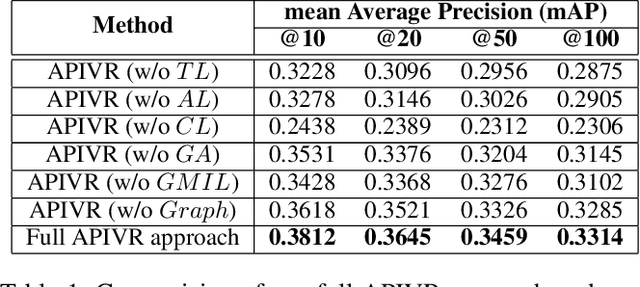
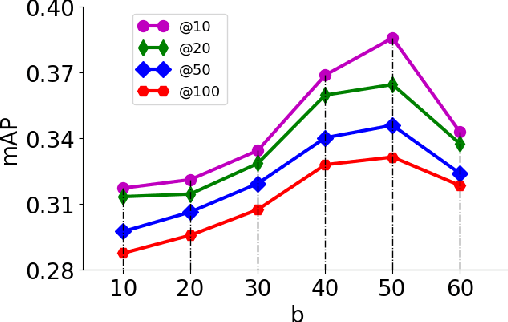
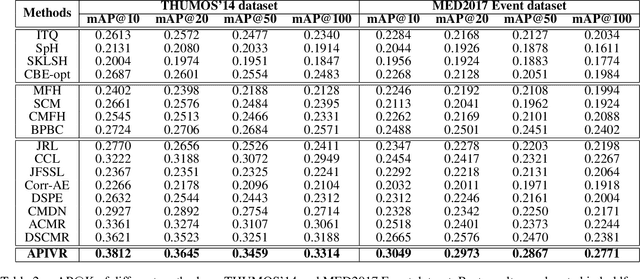
Abstract:Activity image-to-video retrieval task aims to retrieve videos containing the similar activity as the query image, which is a challenging task because videos generally have many background segments irrelevant to the activity. In this paper, we utilize R-C3D model to represent a video by a bag of activity proposals, which can filter out background segments to some extent. However, there are still noisy proposals in each bag. Thus, we propose an Activity Proposal-based Image-to-Video Retrieval (APIVR) approach, which incorporates multi-instance learning into cross-modal retrieval framework to address the proposal noise issue. Specifically, we propose a Graph Multi-Instance Learning (GMIL) module with graph convolutional layer, and integrate this module with classification loss, adversarial loss, and triplet loss in our cross-modal retrieval framework. Moreover, we propose geometry-aware triplet loss based on point-to-subspace distance to preserve the structural information of activity proposals. Extensive experiments on three widely-used datasets verify the effectiveness of our approach.
Binary Subspace Coding for Query-by-Image Video Retrieval
Dec 06, 2016
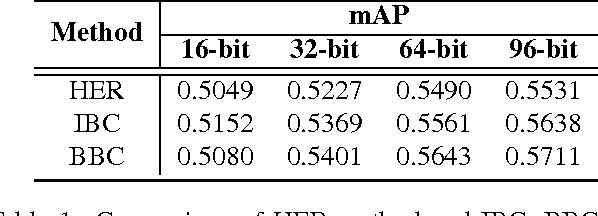
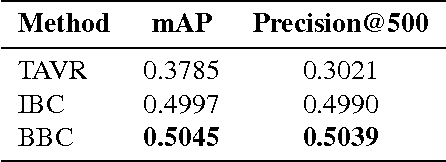

Abstract:The query-by-image video retrieval (QBIVR) task has been attracting considerable research attention recently. However, most existing methods represent a video by either aggregating or projecting all its frames into a single datum point, which may easily cause severe information loss. In this paper, we propose an efficient QBIVR framework to enable an effective and efficient video search with image query. We first define a similarity-preserving distance metric between an image and its orthogonal projection in the subspace of the video, which can be equivalently transformed to a Maximum Inner Product Search (MIPS) problem. Besides, to boost the efficiency of solving the MIPS problem, we propose two asymmetric hashing schemes, which bridge the domain gap of images and videos. The first approach, termed Inner-product Binary Coding (IBC), preserves the inner relationships of images and videos in a common Hamming space. To further improve the retrieval efficiency, we devise a Bilinear Binary Coding (BBC) approach, which employs compact bilinear projections instead of a single large projection matrix. Extensive experiments have been conducted on four real-world video datasets to verify the effectiveness of our proposed approaches as compared to the state-of-the-arts.
 Add to Chrome
Add to Chrome Add to Firefox
Add to Firefox Add to Edge
Add to Edge